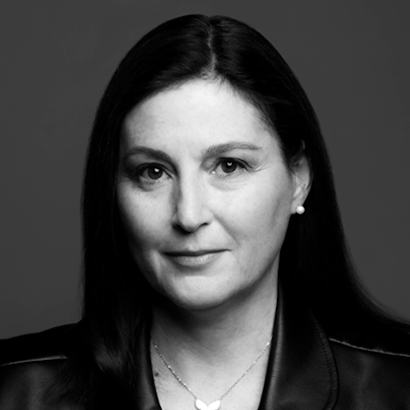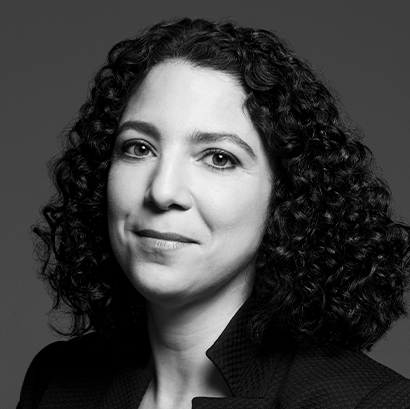Insights on the Independence of Expert Evidence
In the recently released decision dTechs EPM Ltd v British Columbia Hydro and Power Authority and Awesense Wireless Inc, the Federal Court of Appeal (“FCA”) weighed in on the role and independence of experts in patent cases. In particular, the FCA provided guidance on (1) the role counsel may play in preparing expert reports; (2) an expert’s role in claim construction; and (3) the difference in the role of an expert where anticipation is alleged based on prior use versus prior publication.
This case also addresses other issues, such as the procedure for a motion for new evidence on appeal, but this blog focuses only on the issues relating to experts.
Background
This decision is an appeal from the Federal Court decision dismissing dTechs’ claim for infringement of Canadian Patent No. 2,549,087 (“the 087 Patent”). The trial judge, Fothergill J., also held that the claims of the 087 Patent were invalid for anticipation and obviousness. The 087 Patent relates to methods of detecting atypical electrical consumption patterns, such as in the indoor cultivation of marijuana.
The Appellant, dTechs, focused its appeal on a purported lack of independence of BC Hydro’s expert witness, and sought to rely on fresh evidence obtained in the context of the assessment of BC Hydro’s costs. Specifically, dTechs argued that the evidence of BC Hydro’s expert should have been excluded as it could not be considered independent expert evidence. The Appellant’s position was that it would have succeeded at trial if the evidence had been excluded. In particular, dTechs alleged that BC Hydro’s expert lacked the requisite independence because the first draft of his report had been prepared by counsel.
The FCA held that while the new information (expert working agreements and invoices) obtained by dTechs might have impacted the weight assigned to BC Hydro’s expert evidence, the infringement action would have still been dismissed. Although the FCA did not disturb most of the FC’s findings, it held that the new information could have impacted the FC’s finding of obviousness of one claim of the 087 Patent that was only raised in the counterclaim. The FCA allowed a redetermination by the trial judge as to the validity of that claim, should one be desired.
In the course of making its findings about the probative value and import of the new evidence, the FCA provided guidance on several issues relating to the role of experts and the drafting of expert reports in patent cases.
1. The Role of Counsel in Preparing Expert Reports
The FCA set the stage by providing “general comments regarding the particularities of expert evidence in patent cases”.
The Court stated that it is not unusual for counsel to collaborate closely with experts when drafting reports for patent cases, and that it is not necessarily improper for counsel to prepare the first draft of such reports after meeting with the expert to discuss their opinions in detail. Such a practice allows parties to present expert opinion to the Court in a way that is useful, given the complexity of the legal issues in patent cases, which will usually not be familiar to technical experts.
Citing the Ontario Court of Appeal in Moore v Getahun, the Court reiterated that highly technical areas like patent law often require that lawyers provide more instruction to experts, resulting in more consultation and a greater number of expert report drafts. The Court further emphasized the need for guidance where an expert has no experience in patent cases.
The Court stated that there are limits to counsel’s role in preparing expert reports. The opinion presented must be substantively and objectively those of the expert, which is why experts are put on notice of their duty to the Federal Court when they agree to abide by the Code of Conduct for Expert Witnesses. The Court emphasized that litigators in patent cases can and should test the evidence of experts on cross-examination to tease out whether an expert’s opinion is truly and objectively their own.
The FCA stated that it was not aware of any cases in which an expert report was excluded on the basis that the first draft of the report was written by counsel after extensive consultation with the expert, but that counsel overstepping in their role could lead to the Court placing less weight on such a report.
2. The Role of an Expert in Claim Construction
The FCA also provided guidance on the role of the expert in claim construction. The Appellant argued that the Court should not have given any weight to evidence provided by one of the Respondents’ experts as to the meaning of a technical term in the claims on the basis that he was not an independent expert, such that the Court would have had to rely on and accept the evidence of its expert. The FCA rejected this argument, holding that a trial judge is not required to follow in its entirety the claim construction evidence of one expert or another.
The FCA held that the role of expert evidence in construing a technical term in the claims was previously addressed in its recent Biogen Canada decision and the Supreme Court of Canada’s seminal Whirlpool decision. The FCA reiterated that claim construction is a matter of law for the judge rather than the expert, and the expert’s role is to provide the Court with assistance when it comes to understanding the meaning of technical terms. In particular, the FCA stated that the Court typically does not require expert assistance to understand the meaning of terms of the art of claim drafting, such as “further comprising”. While reference to expert evidence is permissible, claim construction should occur based on the trial judge’s own analysis.
3. The Role of Expert Evidence in Anticipation Alleged on the Basis of Prior Use Versus Publication
The FCA stated that where anticipation is alleged based on prior use, satisfying the onus of proof may require expert evidence (e.g., where expert evidence demonstrates that a compound falls within the technical description of a species in a claim, which is a technical matter that would typically not be within the judge’s knowledge). However, the FCA also stated that once the claims have been construed, it is possible that fact evidence of lay witnesses may demonstrate that each of those claim elements had been disclosed by the prior use.
By contrast, where anticipation is alleged based on a publication, typically expert opinion on how a POSITA would read and understand a publication is necessary, unless the wording of the document is very clear.
Takeaways
This is an important decision on the role and independence of experts in patent cases. It further entrenches the approach of the FC and the FCA to expert evidence, which may differ from that in other courts across the country. The FC and FCA have repeatedly taken a pragmatic approach to complex patent cases, which recognises the difficulties faced by counsel and experts in explaining technical subject matter in a way that can be understood by non-technical judges and organizing that technical subject matter into the frameworks of the relevant legal tests. The primary takeaway here is that counsel assistance is entirely acceptable so long as the expert report and testimony reflects the truly held opinions of the expert.
In addition, building on previous decisions, this decision addresses the proper role of the expert versus the Court in claim construction. The trial judge must consider expert evidence as to the meaning of technical terms not within the judge’s knowledge; weigh competing expert evidence; apply their own analysis to non-technical terms; and ultimately come to their own construction of the relevant claims.
Interestingly, this decision was written by Justice Gauthier, who also wrote for the FCA (a different panel) in the 2022 Biogen Canada decision, which also addressed claim construction and clarified the law. Justice Gauthier is holding the pen in drafting significant decisions regarding claim construction and the role the expert plays on that front. These two cases alone and read together speak to key areas of interest to patent practitioners, parties, and experts.



